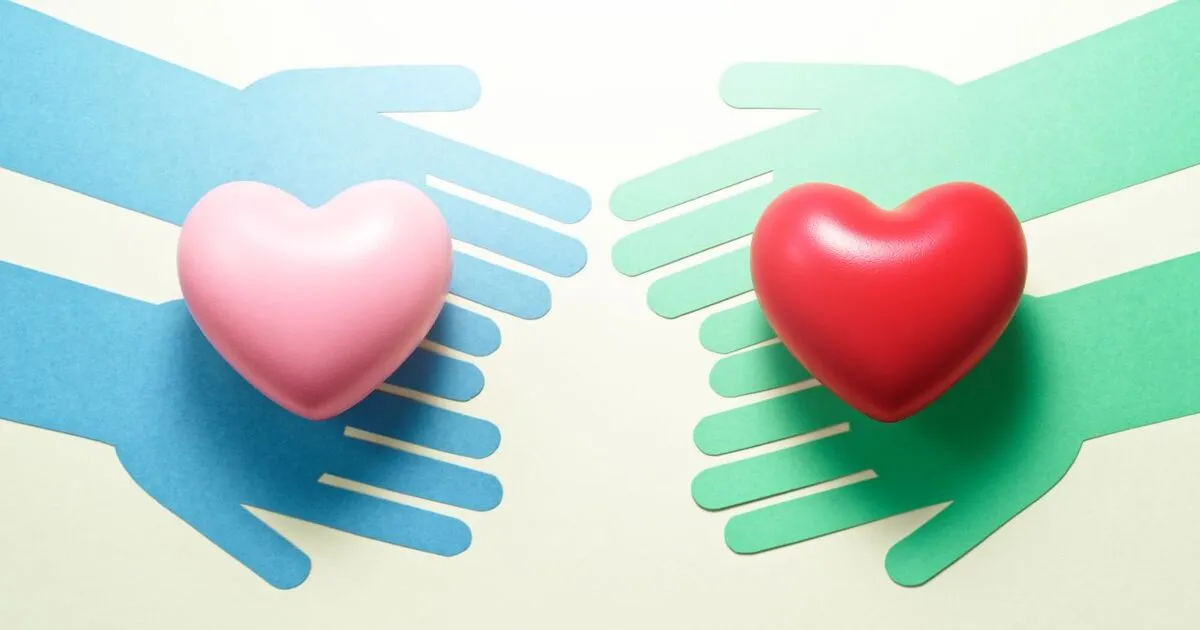What Is Compassion? Humanities Greatest Power!

We often face moments where we see others in distress but feel unsure about how to respond. Understanding what compassion truly means can help us navigate these situations with confidence and kindness.
What is Compassion? A word that comes from the Latin term meaning “to suffer together,” is much more than a fleeting sense of sympathy. It’s a deep emotional response that drives us to take action to alleviate another person’s suffering.
While empathy allows us to understand and share someone else’s feelings, compassion moves us to help. Many people mistakenly believe that showing concern requires grand gestures or saintly qualities.
This misconception can hold us back from performing simple acts of kindness that significantly impact someone’s day.
Embracing this doesn’t mean making grand sacrifices. Small, everyday actions, like holding the door for someone or offering your seat on the bus, are powerful expressions of understanding.
These gestures show that we care and are willing to help, reinforcing our shared humanity. By incorporating these acts into our daily lives, we not only support those in need but also foster a more compassionate community.
Next time you see someone struggling, remember that even the smallest act of kindness can make a big difference. Embrace it and let it guide your actions, creating a ripple effect of positivity and support in the world around you.
This article will explore what it is and how to recognize this essential emotion. You’ll learn about the benefits of practicing it and discover practical tips to help you become a more compassionate person in your everyday life.

Signs of Compassion
Compassion is a multifaceted emotion that involves recognizing and responding to the suffering of others with a desire to alleviate it.
This profound feeling manifests in various ways, both through our actions and our attitudes. Understanding the signs can help us identify and cultivate this vital human quality in ourselves and others.
Key Indicators of Compassion
1. Active Listening: A compassionate person is an excellent listener. They go beyond merely hearing words; they truly understand and reflect on what the other person is saying, without jumping to conclusions or passing judgment.
This creates a safe space for others to share their vulnerabilities and feel supported.
2. Empathy and Emotional Resonance: Compassionate individuals often display a deep sense of empathy, where they can feel and resonate with the emotions of others. They don’t just acknowledge another’s pain but connect with it on a personal level, feeling motivated to help.
3. Non-Judgmental Acceptance: A hallmark of compassion is the ability to accept people as they are, without criticism. Compassionate people avoid blaming others for their misfortunes and instead focus on understanding and supporting them through their difficulties.
4. Acts of Kindness: frequently translates into tangible actions. Whether it’s volunteering at a shelter, helping a neighbor, or simply offering a kind word, compassionate people are proactive in their efforts to assist others.
These actions are often spontaneous and driven by an intrinsic desire to help.
5. Patience: Being patient, especially in challenging situations, is another sign of caring. Compassionate individuals give others the time they need to process their emotions and experiences, understanding that everyone progresses at their own pace.
6. Gratitude: Expressing and feeling gratitude is closely linked with compassion. Those who often acknowledge and appreciate the efforts of others, reinforcing positive behavior and fostering a supportive environment.
7. Self-Compassion: True compassion extends to oneself. People with grace treat themselves with the same kindness and understanding they offer to others.
They recognize their imperfections and practice self-care, ensuring they are emotionally and physically capable of helping others.

Cultivating Compassion
While some people are naturally more compassionate, it is a quality that can be nurtured and developed. Here are some steps to enhance this frequency in your life:
1. Mindfulness Practices: Engaging in mindfulness and loving-kindness meditation can help increase awareness of others’ suffering and foster a compassionate mindset.
These practices involve focusing on positive thoughts and feelings towards oneself and others, enhancing emotional resilience and empathy.
2. Setting Intentions: Setting daily intentions to act with compassion can reinforce this trait. Reflecting on questions like “What do I want for myself?” and “How can I help others today?” helps keep compassion at the forefront of your actions.
3. Reflective Practices: Regularly reflecting on your actions and their impact on others can deepen your understanding.
Keeping a journal or discussing experiences with a supportive community can provide valuable insights and encourage continuous growth.
4. Seeking Support: Finding a community or mentor who values and practices compassion can provide guidance and encouragement.
This support system can help you stay committed to your goals and provide opportunities for shared learning and growth.
Kindness is a powerful and transformative quality that enhances our connections with others and enriches our lives.
By recognizing the signs of tenderness and actively cultivating it, we can create a more empathetic, supportive, and caring world.

What is the True Meaning of Compassion?
Compassion, at its core, means “to suffer together.” This profound concept goes beyond simply recognizing another person’s pain.
It’s about feeling motivated to alleviate that suffering. This idea is deeply embedded in the etymology of the word itself, deriving from the Latin roots “com” (with) and “pati” (to suffer).
Compassion vs. Empathy and Altruism
It’s important to distinguish compassion from related concepts like empathy and altruism. While empathy involves feeling what another person feels and altruism is about selfless acts to benefit others, compassion combines these elements.
It involves not only understanding and feeling the suffering of others but also being driven to take actionable steps to relieve that suffering.
The Two-Fold Nature of Compassion
Paul Gilbert, a leading psychologist in the field, describes compassion as having two main components:
This dual nature highlights that it is not just about feeling but also about doing. It’s an active response that seeks to bring relief and support to those in need.
Benefits of Practicing Compassion
Engaging in compassionate behavior can have a myriad of benefits. These include:
Ways to Practice Compassion
Compassion is frequently mentioned as one of a person’s most essential qualities. And there’s no doubting why. It is the ability to empathize with another person’s situation and then take action to help them. It’s more than simply feeling sorry for someone; it’s a driving force to make things better.
Of course, it doesn’t always come naturally. It’s something that has to be practiced. And it starts with empathy.
When you see someone going through something difficult, you put yourself in their shoes and imagine how you would feel in their situation. This helps you to understand what they are going through and why they are feeling the way they are.
Once you have that understanding, compassion takes over and drives you to help in any way you can. Because you can feel the other person’s pain so acutely, there is a strong motivation to do something to ease their suffering.
Whether it’s a simple act of kindness or something more substantial, it compels us to make the world a better place for everyone.

The Impact Compassion Has on People
Compassionate people live happier lives: They often have healthier lifestyle habits, such as eating a healthy diet and exercising regularly. So, if you want to improve your longevity, consider being more kindhearted. Volunteer your time to help those in need, reach out to your loved ones, and focus on being kinder to yourself and others.
Giving To Others Feels Great: Those who gave the money away reported feeling significantly happier than those who spent it on themselves. Generosity doesn’t just make you feel good – it also does good for others.
When we give to others in need, we help to make their lives a little bit better. And when we do that, we also make the world a better place.
Life Purpose: Compassion is often regarded as a quality that leads to a meaningful life. One study has even found that it can play a role in better health.
Researchers discovered that individuals who had eudaimonic happiness, a form of joy that comes from living a meaningful life and assisting others, had decreased levels of depression, greater immunity, and less inflammation.
While the results of this research are certainly noteworthy, it is critical to remember that it is only one aspect of a meaningful existence.
Happiness and health are also influenced by factors such as genetic disposition, lifestyle choices, and access to resources. However, the study found that it might lead to a better overall quality of life.
And so, whether we are trying to improve our own lives or make the world a better place, perhaps we should all try to cultivate a little more kindness and understanding in our hearts.
Compassion Makes Relationships Healthier: Research suggests that it is a key predictor of the success and satisfaction of relationships. When we are compassionate, we tend to see the best in others and are more forgiving when they make mistakes.
We’re also more likely to express our vulnerabilities, which can create a deeper sense of trust and intimacy. It can help to buffer against the negative effects of stress, making us more resilient in the face of challenges.
As a result, cultivating humanism can be an important way to improve our relationships and protect our mental well-being.
Downside of Compassion
It is a virtue that is highly valued in many cultures. It is often seen as the cornerstone of caregiving professions, such as healthcare and social work.
However, constant exposure to the suffering of others can take its toll on even the most kindhearted people. This phenomenon, known as compassion fatigue, is characterized by a sense of overload or burnout.
People who suffer from this fatigue may feel overwhelmed by the demands of their job, leading to feelings of cynicism and hopelessness. In severe cases, compassion fatigue can lead to depression and post-traumatic stress disorder.
While it is a vital quality for those in caregiving professions, it is important to be aware of the risks of draining your life force.
Taking steps to protect your mental health, such as setting boundaries and seeking support from colleagues, can help you avoid this potential pitfall.
What is Compassion with Example?
This emotional response is where we feel moved by the suffering of others and are motivated to help alleviate it.
This deeply human trait is characterized by kindness, empathy, and a genuine desire to make a positive impact on someone’s life. Let’s break this down with some real-world examples to illustrate what being a human looks like in action.
Everyday Acts of Grace and Ease
1. Helping a Neighbor in Need: Imagine you have a neighbor who recently lost their job and is struggling to make ends meet. You notice their lawn is overgrown, and they seem overwhelmed by daily tasks.
Out of goodness, you mow their lawn and bring over a homemade meal. These actions show kindness and support, easing their burden during a tough time.
2. Volunteering at a Shelter: Volunteering at a homeless shelter is a powerful example of unselfishness. By serving meals, offering a listening ear, or helping individuals find resources for housing and employment, you are directly contributing to the well-being of others.
Your efforts can provide much-needed relief and hope to those in difficult situations.
3. Donating to Charity: Giving money to a charity that supports causes you care about, such as education for underprivileged children or medical care for sick animals, is another form of compassion. This act of giving demonstrates a willingness to help those in need, even if you never meet the beneficiaries of your generosity.

Compassion in Professional Settings
1. Compassionate Healthcare: Healthcare professionals who go beyond their duties to provide emotional support to their patients exhibit compassion.
For instance, a nurse who sits with a patient and holds their hand during a difficult procedure, or a doctor who takes extra time to explain a diagnosis and treatment options thoroughly, shows deep empathy and care.
2. Supportive Work Environment: In the workplace, it can manifest as managers who recognize the personal struggles of their employees and offer flexible work hours or mental health days.
This understanding and support help create a positive, nurturing environment where employees feel valued and cared for.
Humanness in Crisis
1. Disaster Relief Efforts: When natural disasters strike, such as hurricanes or earthquakes, the outpouring of aid from individuals and organizations worldwide is a testament to humanitarianism.
Volunteers who travel to affected areas to provide food, shelter, and medical aid are driven by a desire to help those in dire need.
2. Acts of Kindness During a Pandemic: The COVID-19 pandemic showcased numerous acts from the heart. From neighbors running errands for those who were quarantined to people sewing masks for healthcare workers, these acts were crucial in supporting and uplifting communities during challenging times.
The Ripple Effect of Good Nature
It is not only beneficial to those who receive it but also to those who give it. Studies have shown that compassionate actions can reduce stress, improve overall well-being, and even lead to a longer life.
This ripple effect means that a single act of kindness can inspire others, creating a more caring and supportive society.
Subscribe to Create Higher Vibrations!
Get Inspiration and Practical advice straight to your inbox.
A Final Thought!
This is the ability to feel what others are feeling and motivated by a desire to improve their well-being. While some people may be more compassionate by nature, there are things that you can do to help improve your ability to feel for others.
It takes time and practice to master this talent, but it is worth the effort. Being receptive to others’ emotions can help you make a huge impact on humanity!
In addition, studies have shown that practicing compassion can lead to improved physical and mental health outcomes. So why not give it a try?
If you’re not sure where to start, there are many resources available that can help you get started on your journey of becoming more compassionate.




